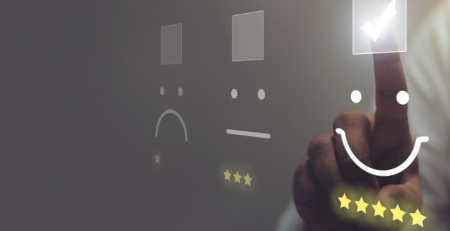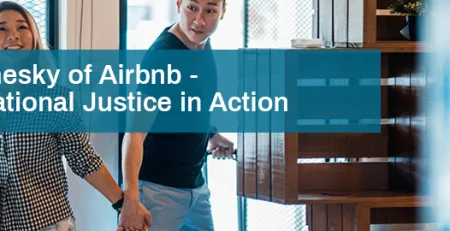Fearless Leader: An interview with Dr. Cathy Greenberg
Dr. Cathy Greenberg is an Executive Coach, bestselling author (Wall Street Journal, Amazon, New York Times), lauded Podcast Host, and Founder of The Fearless Leaders Group (now known as http://EBGuardians.com), an LMS dedicated to leadership coaching for individuals and organizations across public safety, law enforcement, and DoD within the Emotional Brilliance Academy. Cathy has spent much of her career creating and fostering leadership and now dedicates much of her time and expertise serving the Special Operations community. As an educator and entrepreneur, Cathy is an advocate of emotional intelligence and its contribution to improved job performance, greater job satisfaction, higher profits, and organizational effectiveness.
The interview below has been edited for length and clarity.
Tell us a little bit about yourself. How did you get into the talent development space?
CATHY: With a history working as a Physical Anthropologist, I went into business internationally, moving up the ranks pretty quickly, and began working in methodology and development. I was later recruited by a company called Anderson Consulting, which became Accenture, where I led their Global Leadership and Organization Competency Group Practice which included co-founding the Institute for Strategic Change with colleagues around the world from across leadership and organizational development, process, strategy, technology and change management.
Shortly after that, I co-founded the Drexel University LeBow College of Business Institute for Strategic Leadership, where we embedded emotional intelligence (EI) throughout the curriculum including Emotional Quotient-Inventory 2.0® (EQ-i 2.0®) certification classes applied during their Mandella Fellowship for Young African Leaders, bringing business leaders from around the world to network and develop their knowledge with a focus on EI.
Since leaving the public sector, I wanted to dedicate my time to those who serve. I pivoted from consulting to executive coaching, and that’s where MHS came into my life. I’ve had great mentors over the years, such as:
- Warren Bennis, one of the great minds and early pioneers of leadership
- Dr. Daniel Goleman, an emotional intelligence expert; and
- Dr. Reuven Bar-On, an emotional intelligence expert and originator of the EQ-i model
I then came across Dr. Steven Stein, Founder of MHS, and we talked about the EQ-i 2.0. Once I became certified, I became an advocate for the use of this tool in military and law enforcement ever since.
[Editor’s Note]: The EQ-i 2.0 is a psychological assessment tool designed to measure emotional intelligence. It assesses an individual’s ability to perceive, express, understand, and manage their own emotions, as well as their ability to perceive and respond to the emotions of others. The assessment provides an overall EQ score and scores in several specific areas related to emotional intelligence, such as empathy, emotional self-awareness, and emotional self-expression.
My husband, Matthew Werner, who is a special warfare operator, also joined our team at the Fearless Leaders Group. He’s also EQ-i 2.0 certified and wished somebody had told him about emotional intelligence earlier so that he [could have] used it as part of his career development. We are now teaching at major national universities for law enforcement. We contributed to building the nation’s first EI based SWAT Team Leader Course for use across all federal and municipal Tactical Operations Teams for Public Safety with our business partners at the National Command & Staff College. You cannot become a SWAT Team Leader nationally if you do not complete this program. So, I am powerfully excited and have seen the impact of the work that I have created.
What drew your interest to emotional intelligence?
CATHY: Being a student of the pioneer in leadership, Warren Bennis, and some of his past colleagues, we recognize that “soft skills” are, in fact, the hard part. They are revenue generators for organizations. Early in my consultant career, we had to create a business case for anything. Well, if you look at the data behind emotional intelligence, research has found that the cost of not managing emotional intelligence inside organizations can cost us up to two and a half times the salary of an individual who leaves due to a lack of role fit. Every role involves EQ traits that make the person who has them better at their job. Every company has its own culture. What works in Toronto isn’t going to work in Quebec; what works in New York isn’t going to work in California.
You have to understand these characteristics and evaluate what it costs you to hire and train. I’ll give you an example of how we transferred from leadership return on investment (ROI) to what I call ROP (Return on People). In our industry, whether it’s the military or law enforcement, suppose you pick the wrong candidate to put through the academy. You keep them in your force for over a year serving the community, yet they refuse to exit their patrol car because they don’t have the interpersonal and problem-solving skills to deal with other people. When this individual went through the academy and field training, they had the skills they believed they needed. However, they are now faced with interpersonal and problem-solving skills that their agency didn’t realize were key to top performance. Training with the EQ-i 2.0 could have helped develop those skills. This individual has now cost them as much as $300,000 in the span of 12-18 months, and they’re walking out the door. After you have invested in that person, where are they going to go? They may go to another agency. In our case in the U.S., and I’m sure it’s similar in Canada, that’s money out of our taxpayers’ pockets.
Why is the EQ-i 2.0 your go-to assessment for emotional intelligence?
CATHY: I have been certified in other tools and honestly have not always used them fully, because, as a Behavioral Scientist, I truly wanted to understand an array of EI tools and all their depth. What has made me return to the EQ-i 2.0 is the simplicity of the customized report, with the last two pages dedicated to an individual’s SMART goals. What no other tool has is the content, usability, and application that the EQ-i 2.0 has. For example, the EQ-i 2.0 includes multiple reports for coaching and development, such as the Workplace Report, Leadership Report, and Group Report. It aligns with MHS’ Emotional Quotient 360 (EQ 360®), an assessment designed specifically for leaders, which includes reports like the Leadership EQ 360 Report and Workplace Report. I personally work with a lot of group reports.
I also use my book, Emotional Brilliance: Living a Stress Less, Fear Less Life, with co-author Relly Nadler, in the Emotional Brilliance Academy.
Overall, what do you think organizations currently struggle with in talent development and retention? How can increased emotional intelligence help?
CATHY: There’s been a lot of discussion about the Great Resignation and the concept of “quiet quitting,” but these are a re-run of what we saw in the early 2000s. In that particular era, we saw that people knew they had other opportunities because markets were different. In today’s market, many people are leaning towards jobs where they don’t have to interface with another person because they find it too stressful.
I believe emotional intelligence assessments could support identifying whether somebody is suited for a customer-facing, administrative, or technical support role. Although some people excel in both, we’re going through a phase where people tend to avoid social interaction due to experiencing negativity in the current business landscape.
I believe that we must fully embrace empathy, especially with the current generation who are very empathetic. A generation that has been raised with several life-altering world events since they were born, whether it was 9/11, or since then, the many active shooter incidents across headlines. So, if you’re not empathetic as a leader, you’re not going to be able to engage the hearts and minds of this generation. You’ll notice many senior leaders move up the ranks and become less empathetic, not only with others but also with themselves. When we are not able to walk in someone else’s shoes, see things from their standpoint, or recognize when someone is emotionally out of balance, we will continue to drive a workforce that lacks sustainability. Emotional intelligence, to me, is the key.
Click here to request more information about MHS’ EQ-i 2.0.










